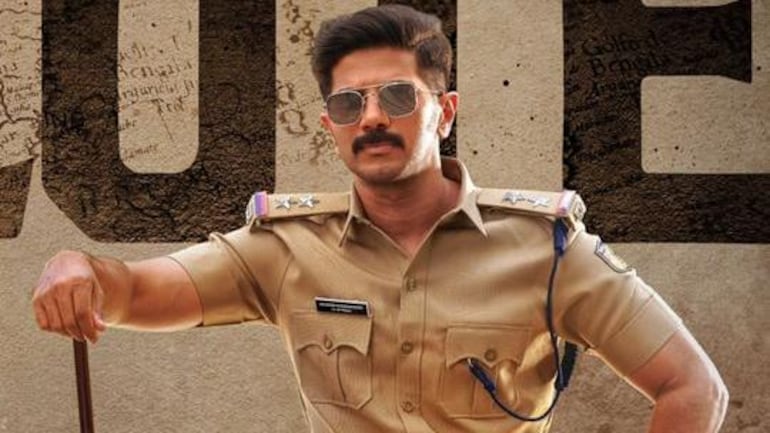
Salute review: Solid Dulquer leads middling thriller

In the Rosshan Andrrews-directed Salute, four men complicit in a crime are seen discussing the potential fallout of their actions, over a drink. These are powerful men, they are vulnerable too. Doorbells and phone tones startle them now; their past is closing in. They talk about tragedies that hit men who did similar things. They talk about their expensive heart surgeries and unwed daughters. What if the law catches up? Is there a tragedy waiting for them as well?
In a black-and-white narrative, the men in the scene are antagonists — they are the ones who stand between The Hero, Aravind Karunakaran (Dulquer Salmaan), and his unlikely deliverance. Salute, though, is not big on these moral binaries. There’s a greyness about its men; most of them sharing a cold spirit for survival. The remorse of the guilty is largely unstated and even with Aravind, the cop who wants to set his past right, redemption comes more from happenstance than intent.
At the centre of the film are three men — a convict who is framed for a double homicide, the elusive, real killer and a cop on his trail, who is also seeking closure to a troubling personal story. Writers Bobby and Sanjay place two of these men in conflicts stripped of drama. They appear distant, even passive, rarely letting us into their minds.
This tendency to stop short of deep dives leaves Salute in a place of undefined sensibilities. In generic terms, this is an investigation thriller with guilt as its overriding theme but with muted tones and an erratic pace, it falters for most of its lead-up. While the film gets many of its procedural elements right, it stumbles when it tries to lead its personal conflicts into the investigation.
The wronged man, serving a life sentence, is restrained even when he confronts the man responsible for his imprisonment – “You can leave, Sir; go live your happy life” is his parting line. The hangdog cop is closer to implosion, let down by the system and ashamed of his own inability to stand up to authority but he’s also evasive. Dulquer makes the character compelling with an unaffected intensity but Aravind is, also, in some ways, detached. There’s anger but we only get to see bits of it — we never really get to know what his involvement in the crime did to him; we don’t know what changed in him.
His conflict doesn’t have the ideological or emotional heft to get us invested in his journey. It gets further diluted in a climactic line where he reasons that the crime, the meticulous framing of an innocent man, was the result of systemic inadequacies, effectively sanitising criminal intent and professional misconduct. For a cop who has also studied law, the man is short on conviction.
The absence of a solid moral core or dramatic plot twists can work well in a police procedural, more strikingly if the makers are going for a rooted slow-burner. The problem with Salute is that the investigation here is a stop-start deal as well.
In Mumbai Police (2013), the same writers and the director had seamlessly linked a layered lead character and his story to a murder probe he’s on. Here, the personal stories are drawn on the cop’s family which includes an elder brother who is also a superior officer. Manoj K. Jayan is in fine form here, bringing a hint of nervous energy to play a man who seems to have made peace with his job’s pressure-privilege trade-off and yet, needs to be the hero cop to his adoring family.
A weak track involving Aravind’s live-in partner (Diana Penty) and nervous family introductions hit the pace. There are a few convenient coincidences that take Aravind closer to the killer. The film hits its highs as the trail goes hot.
The third man in the plot, the killer, is a fascinating thief of identities. The build-up to this man is superbly pieced together, mostly through anecdotes, some angry, some reverential, none conclusive. Some of the seemingly distractive sub-plots fall in place, opening new leads from dead ends. This is the film’s strongest segment which closes on an abrupt, yet satisfying note. Then, it drifts into a gimmicky post-climactic ruse that takes the fun out of what was left unsaid.
When Salute burns, it does crackle but it takes a while to get there. The treatment is understated, with Jakes Bejoy’s score playing well with the film’s minimalist spirit. Barring two fan-service action sequences, the film doesn’t venerate its charismatic lead star. “I slept well after a long time,” Aravind says after closing the probe. He seems to have found his absolution but did we know enough to care?
(Salute is streaming on Sony Liv)

